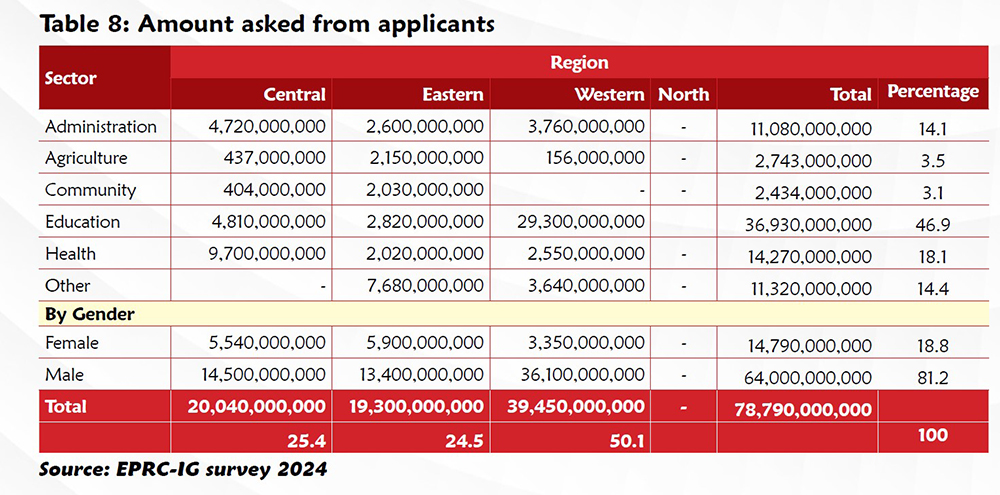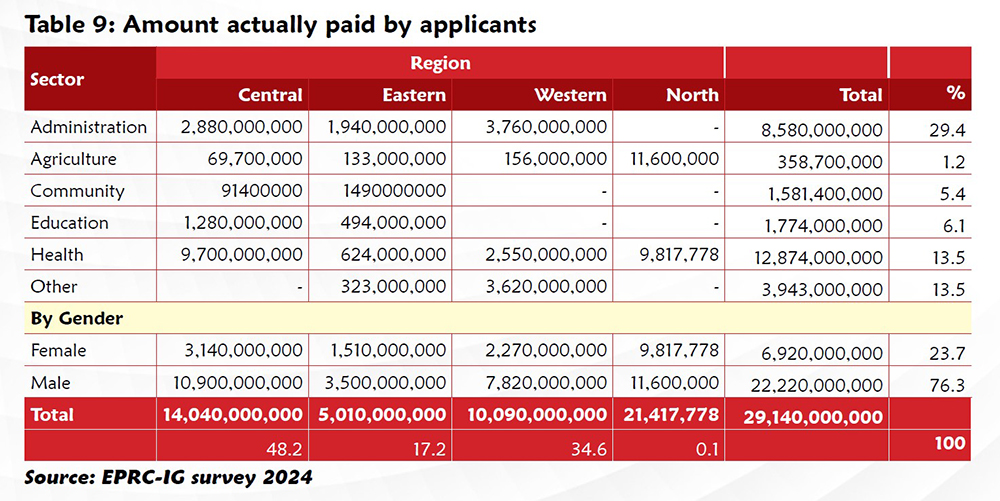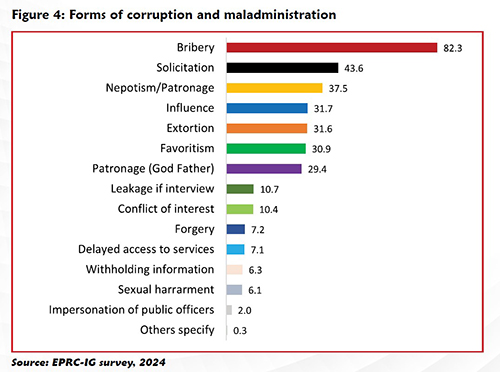Sh50m bribe demanded for senior govt jobs – IGG report
Erem noted that 98% of the participants acknowledged that the Government has established legal frameworks and set up parliamentary committees to address the crisis of corruption in the local communities, but the laws are not implemented.
Average number of reported cases of corruption.
____________________
A damning report by the Inspectorate of Government has revealed that job seekers pay sh40 to sh50m for senior government jobs during the recruitment process.
The report also indicates that approximately sh3m is paid by job applicants for lower-level positions in the government.
The report, which was conducted by the Economic Policy Research Centre (EPRC) in conjunction with the Inspectorate of Government (IG), between 2018 to 2022, was earlier today (Aug 20) presented by Dr Emmanuel Erem at Hotel Africana in Kampala.
His audience included: anti-corruption agencies, district service commissioners and permanent secretaries from Ministries, Departments and Agencies.
Erem noted that 98% of the participants acknowledged that the Government has established legal frameworks and set up parliamentary committees to address the crisis of corruption in the local communities, but the laws are not implemented.
According to the survey, sh78b was asked from the job applicants in the Local Governments as bribes in the last five years, while sh29b was paid by them.
Amount asked from applicants.

Amount paid by applicants.
At the events Prime Minister Robinah Nabbanja, who represented President Yoweri Museveni launched the report launched the report on an assessment of the cost and extent of corruption in recruitment by the District Service Commissions.

Forms of corruption and maladministration.
In his speech, the President said that the National Resistance Movement (NRM) set out to fight corruption from the onset.
He also explained that the NRM mission was aimed at bringing decision-making closer to the people and ensuring responsiveness to local needs, and promoting accountability.
“By 1986, the Ugandan state and economy were on the verge of collapse. All the pillars of the state, i.e. the army, civil service, judiciary, etc., were non-functional. For example, recruitment into the small public service was characterised by nepotism and corruption,” Museveni stated.
“Most of the districts lacked functional administrative structures. Therefore, when the NRM came to power, we introduced reforms to decentralise the recruitment process, by placing this function in the hands of independent District Service Commissions,” he added.
The President said that the elimination of corruption and misuse of power was one of the NRM’s ten-point program, demonstrating the longstanding commitment of the NRM to combating corruption.
Museveni said that was because corruption and the misuse of power are barriers to national development and good governance.
He said over the years, Uganda has made strides in strengthening the legal and institutional framework to fight corruption, and the key international and regional conventions have been ratified.
“The government has continued to strengthen the capacity of Anti-Corruption Agencies to efficiently handle the fight against corruption under the National Development Plan IV. These gains have strengthened service delivery in education, health, agriculture and other key sectors,” Museveni noted.